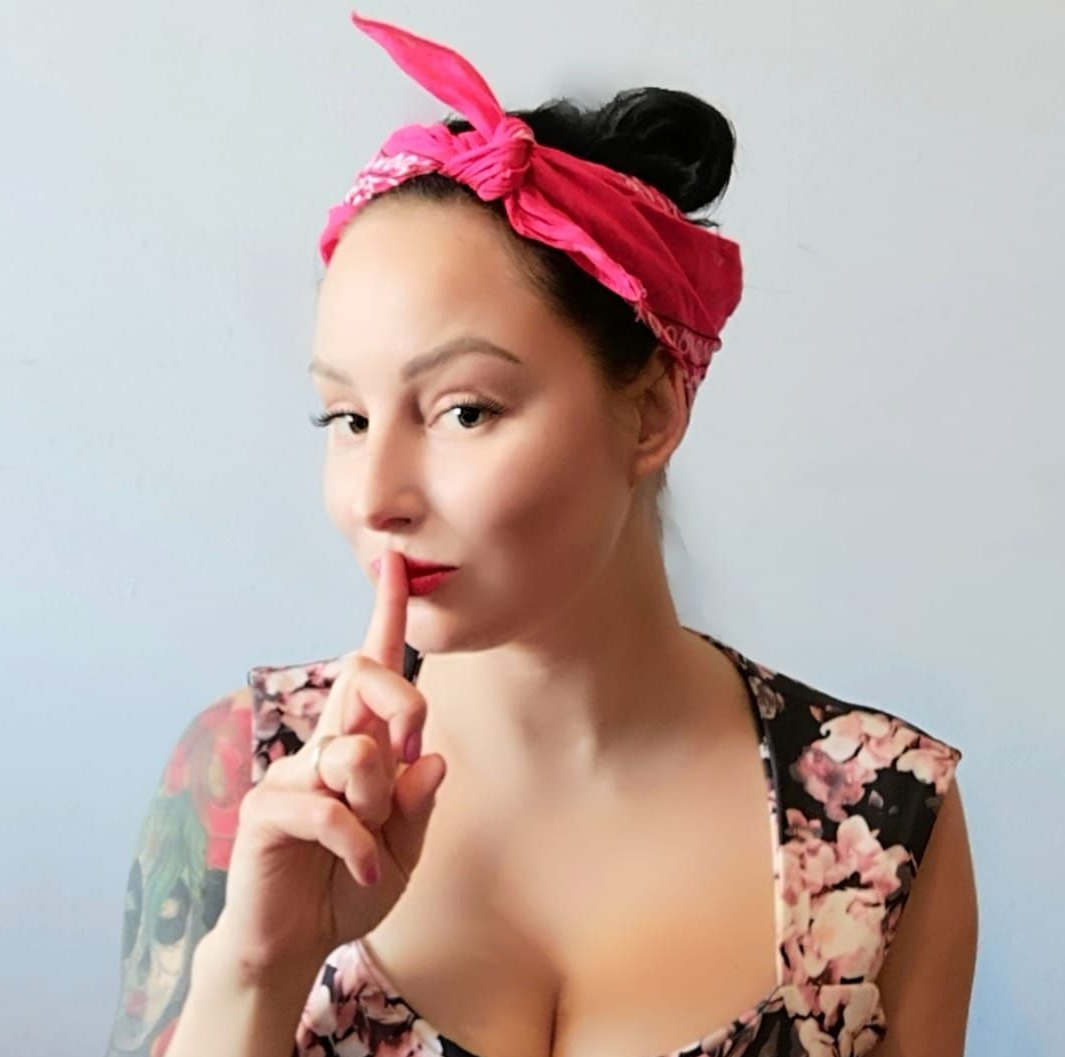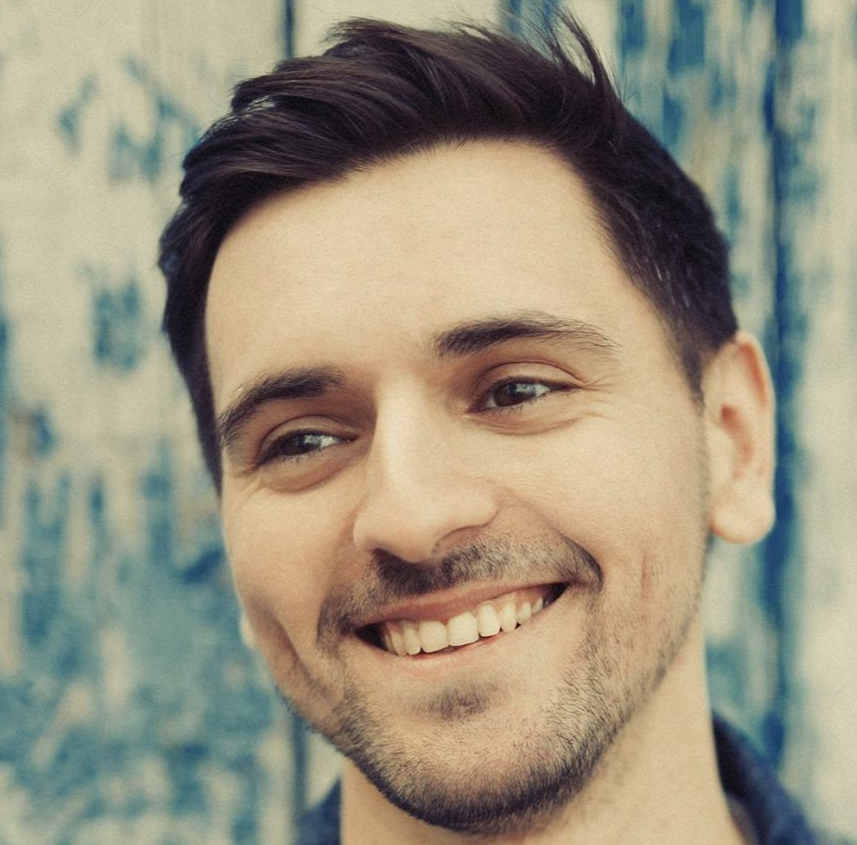Bogdan Globa
Bogdan was the first openly gay man to speak in Ukrainian Parliament; he turned his homophobic mother into an LGBT activist, was inspired by the example of the United States, and created friendly services for the community in Ukraine. He moved to the United States, where he got married and divorced, and now, together with his community of Ukrainian gays, he defends Ukrainian LGBTQ+ community interests in the US Congress.
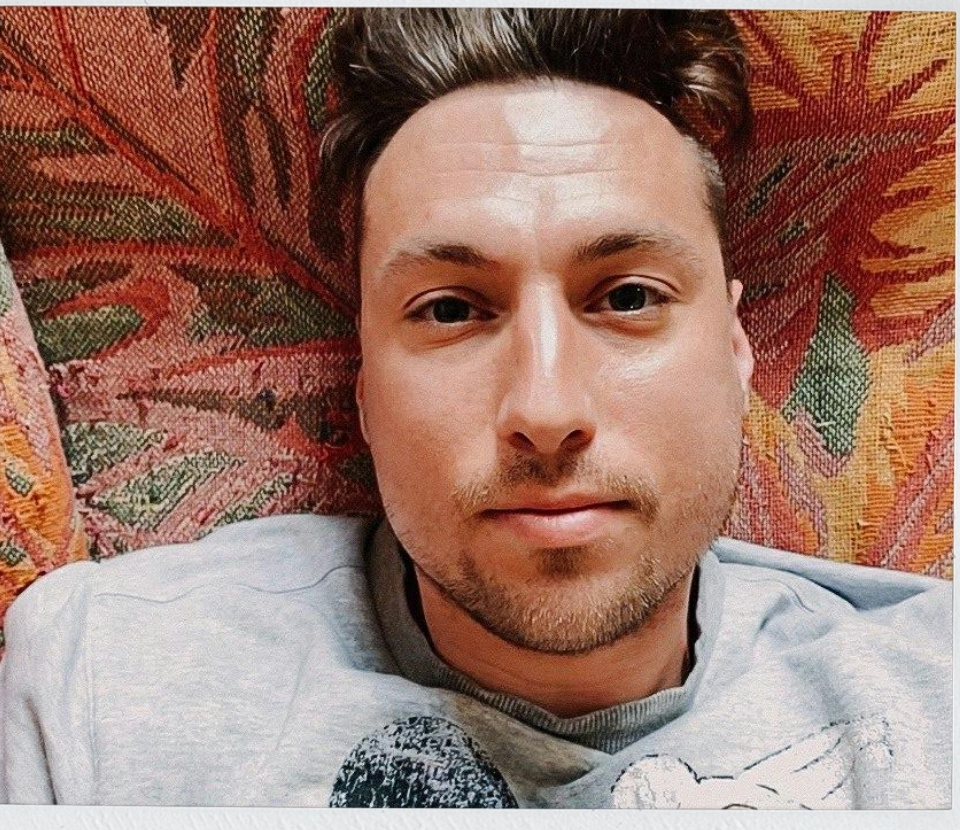
I grew up in Poltava in a family of teachers. My parents were Soviet-style people. So, when my mom found my romantic ICQ correspondence with the boys on my computer, she asked the direct question, “Are you gay?” Back then there were no instructions on how to come out. I was scared and I was only 15. So I just said yes.
They first tried to send me to a mental hospital, but doctors said that in 2005 homosexuality was not considered to be a mental problem. Then they started beating me. My mother mostly just cried, but my father freaked out. At that time, I was going to a class with a legal component, so I turned to the Department for the Protection of the Rights of Minors of the Poltava City Council and said that my parents were beating me because I was gay. They gathered a whole meeting there; it was the first time a gay child came to them. Previously, they only worked with children from disadvantaged families. And in my case, they had to deal with a family of teachers. But my beaten face spoke for me. They invited my parents to the meeting and told them they would be deprived of parental rights if they didn't stop beating me. I temporarily moved in with my boyfriend and then my grandmother. I didn't tell my grandmother about my orientation. I just confessed that my father was beating me, and she sheltered me.
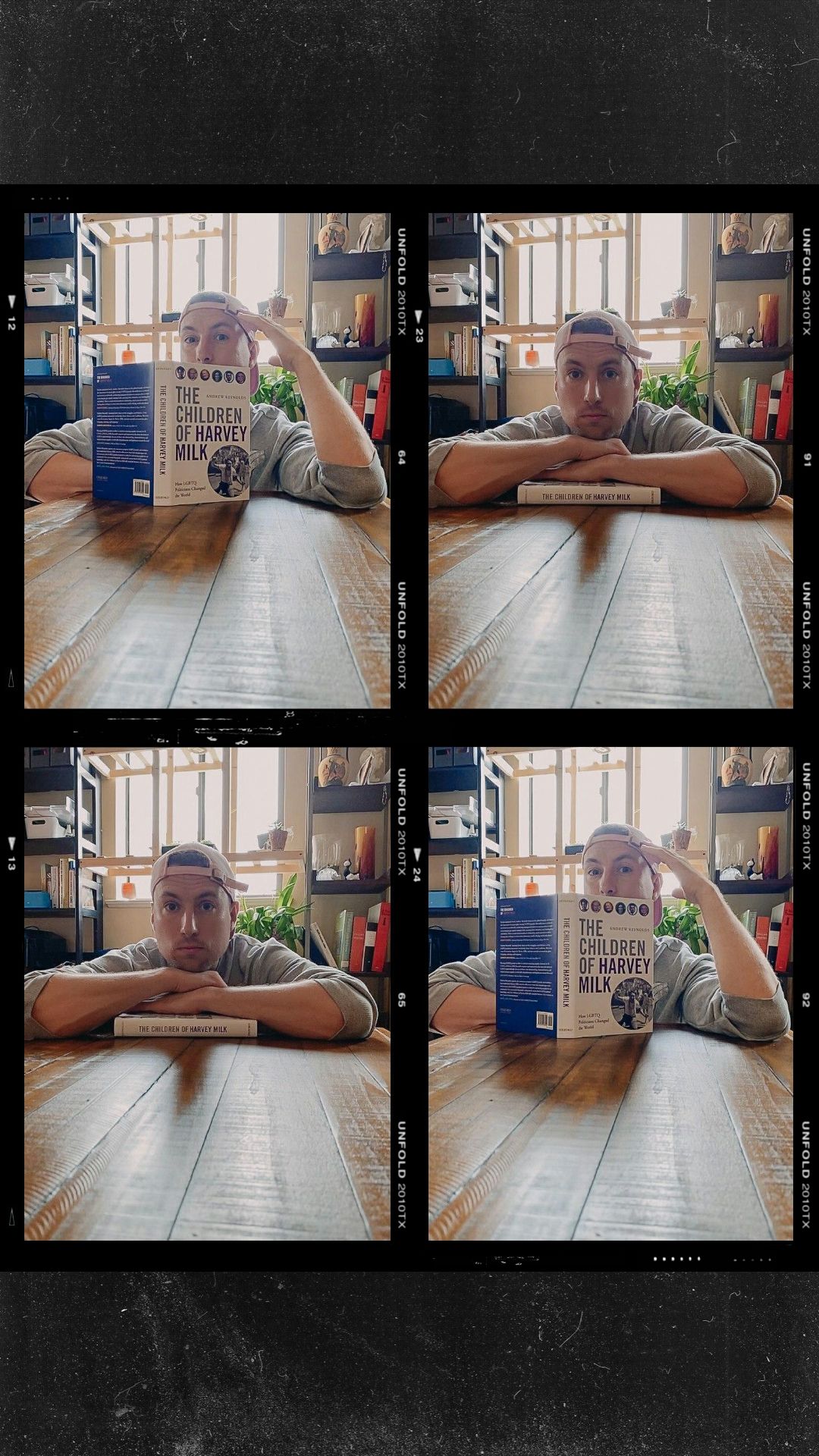
My mother kept on thinking about what she could do for me, and she found a psychologist. She wanted to “get me fixed”. He told her that it was too late for me to get fixed, but she could try to change herself. And it helped her. Being a professor, she went to Vernadsky’s library to look for books on homosexuality. She found only one book written by sexologist Igor Kon “Moonlight Dawn”. She read this book which said it was an innate feature.
An American heterosexual will be happy if you confuse him with a gay man.
It transformed her; it looked like she moved to a new stage. But she still hoped that this was a temporary time in my life and I would change my mind. And this stage lasted for 5 years. And then I took her to Berlin to an LGBT families conference. And she saw that there were not only parents who solved the problem, but also grandparents. And those problems were: what to do with homophobic neighbors when grandchildren come, how not to spoil children when they grow up in a family of two gays and two lesbians, which means they have eight grandparents. Who they are going to visit first for the holidays, etc. My mother was so impressed by this level of LGBT inclusion in the community that she finally accepted me. And I think she also understood that I could have children, and she would become a grandmother, and it was a key factor. My father couldn’t accept me; they divorced, and my mother moved to Kyiv.
In 2012 my human rights work got noticed and I was invited to the United States. It was the time of a rise similar to what we had on Maidan. The country was preparing to recognize LGBT marriages at the state level, in the meantime they were allowed only in some liberal states. I was astonished with the level of their advocacy. They inspired me to move to a different level of activism, to go to power, because it will not come to us if we do nothing. I saw the level of freedom every American had. One day a man in a woman’s dress came to Congress for a hearing, because according to his words “he felt like doing it that morning!”. And no one said a word to him.
I brought the idea of promoting inclusion in the workplace among businesses, creating a friendly clinic "Friendly Doctor", where you could get tested for HIV and get a consultation of a urologist, and also the idea of LGBT parents’ organization.
In the United States I lived with a family of two gay men. The mother of one of them was an activist in the parent movement. And in Ukraine, I offered my mother to lead a similar organization, to support other mothers with her experience and knowledge. She immediately said nothing good would come of it, parents would be afraid to participate in such an organization.
But I persuaded her to meet my boyfriend’s mother, who was ignoring his coming-out, and another gay mother in the office of Fulcrum. They stayed there for 6 hours and hardly talked. They mostly cried. The three of them started meeting each other. And then a few more mothers joined them. Mostly because of our patriarchal society, women are more involved in activism. Then we made an event and became famous; more parents joined them. They called their organization TERGO.
I continued to promote LGBT community rights. First, I came to a meeting of the Human Rights Committee to discuss the visa liberalization strategy. There was just a clause on anti-discrimination. At the end the audience could take the floor. I said, “I am openly gay. What is going on with LGBT rights?” Members of parliament blushed, they were shocked, as if the word “gay” was first heard in those walls. Even when they answered, they tried to avoid the word saying “we have no problems with these people” and so on. It was fun.
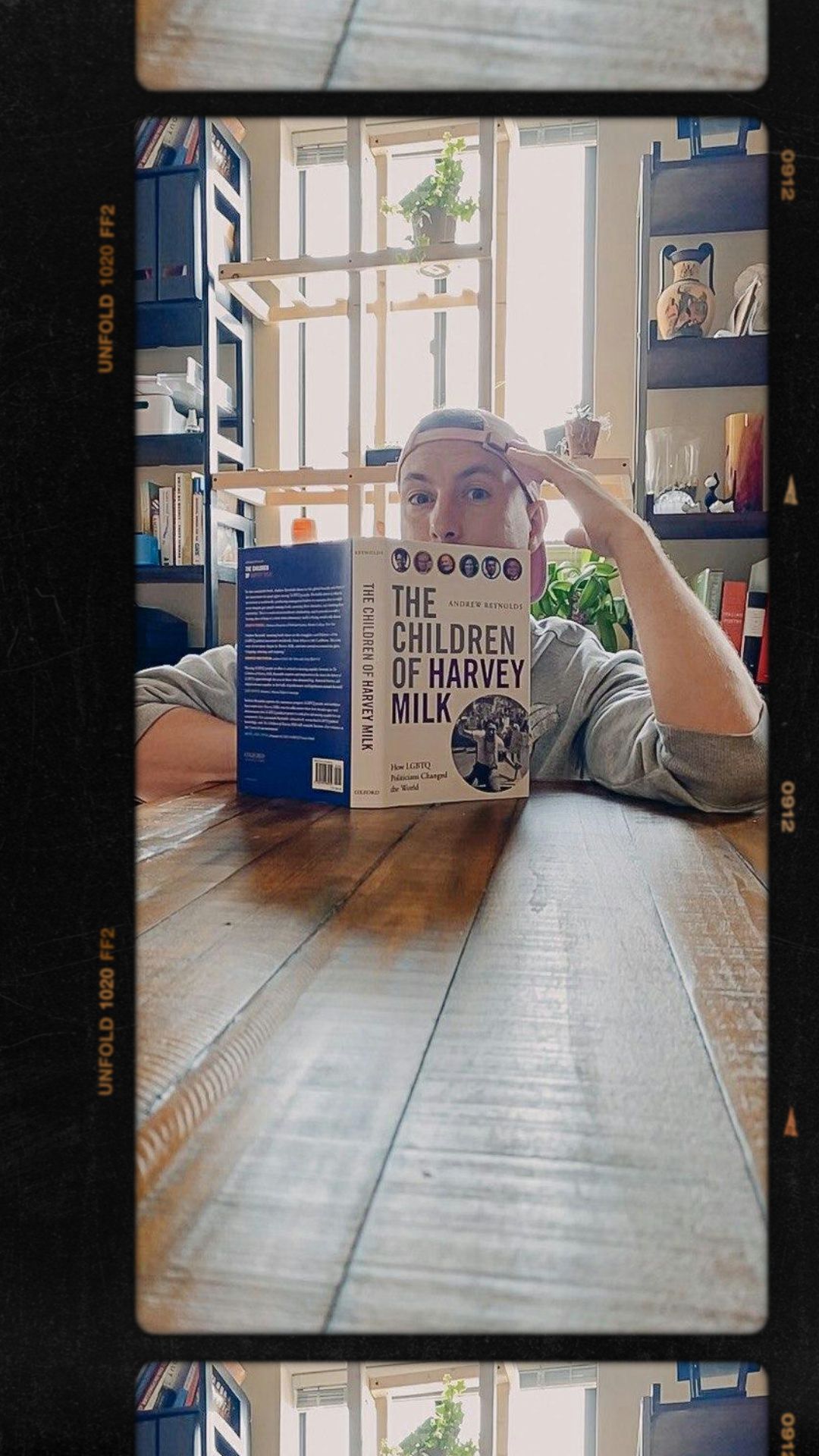
Then I made an appointment with Hryhoriy Nemyria, Chairman of the Parliamentary Committee on European Integration. We prepared recommendations on anti-discrimination, because this was one of the requirements of visa liberalization with the EU, and I offered him cooperation. He asked how he could thank me. I asked to become his assistant because it would increase the visibility of the community and give us access to parliamentary resources. He agreed. I received an attendance document and I got access to the Verkhovna Rada. It gave me access to all the meetings. Because you can get into the Parliament as a member of the general public, but it’s very difficult bureaucratically. I was invited to the Presidential Administration to give a lecture on LGBT rights in the EU, how it works there.
When we had parliamentary hearings on the visa-free regime, Nemyria called me and offered for me to speak on the anti-discrimination law. I agreed and they included me in the agenda. So I became the first and last openly gay man to speak in the Verkhovna Rada. Then there was incredible publicity, the media wrote about us, I was invited to popular TV shows, several million people saw me. I had a heated discussion with members of parliament Oleh Tyahnybok (Svoboda) and Oleksandra Kuzhel (Batkivshchyna). She shouted: “Then we won’t be able to fire a kindergarten teacher if she's a lesbian!” Well, yes, I said, this is what human rights are about. She has to meet professional standards, who cares what her orientation is?
And then in 2014 Maidain happened. I was very active; I became a media person. I became the face of the Ukrainian LGBT movement because many representatives of the community couldn’t and didn’t want to speak. I was the one who was not afraid to talk about my private life.
I returned to the United States in 2016 when Brown University invited me to give a lecture on LGBT rights; they had a Ukrainian program. I was surprised by this university: it was located in a small town of 30,000 inhabitants, but the campus had rainbow flags on the windows; no one was afraid to openly express their orientation.
In contrast to this freedom, right-wing radicals in Kyiv destroyed the TERGO’s exhibition on Khreshchatyk. There were photos of parents with their gay, lesbian, transgender children, and short slogans, mottos that helped these parents to accept their children. Right-wing radicals destroyed posters and began threatening the community again. And there, in that liberal country, on that campus with rainbow flags on the windows, I realized that I might never see the light at the end of the tunnel in Ukraine. We were like in the Middle Ages. I will never be able to get married, have children, moreover, my life there will always be in danger. I didn’t have a boyfriend in Ukraine, so I decided to stay in the United States and seek political asylum.
My mother did not immediately believe that I would stay in America forever. But when she was once invited to Washington to present an award for human rights work, we met and I told her about my intentions in person. Then she understood. And she cried a lot. She does not plan to move to the United States. In Ukraine, she is safe, and emigration is a difficult step.
I have been thinking about organizing a Ukrainian LGBT community in the United States for a long time, since 2012, when I first visited this country. There were Russian organizations here, but there were no Ukrainian ones, although there is a community, and it is quite large. When I moved, we officially formed the first Ukrainian column in New York. Back then, we had a rift between the Ukrainian and Russian communities. Previously Russians were trying to cover all post-Soviet communities like everyone still understands Russian, let’s all get in one organization. But then Georgia left. And we had a conflict with Russians but hoped to find an understanding because we were all refugees, they ran away from Putin and his politics. But the Russians stood their ground and this made Ukrainians very angry, they almost all left the organization. There was a vacuum. There were Ukrainians, there were many of them, and there was no organization. And then, I got a few active people together and offered to organize QUA. We became a full-fledged organization in 3 years.
I moved to Washington to work in Congress, representing Ukrainian LGBTQ+ community interests. Here we submit requests, organize meetings, make panel discussions. For example, we explain how Russian propaganda works in Ukraine, how Russia finances anti-LGBT movements in Ukraine. We show these cases because Americans don’t know the problems of other countries well enough. There are not that many people lobbying for Ukraine here in Congress, and we are trying to include more of our problems in the agenda.
Not that many things in the American LGBT culture were new to me when I moved, I’ve seen them all before. But I had many negative surprises. Now there is a setback in terms of democracy because of Trump, he curtails a bunch of progressive programs. In general, American society is not as progressive as they show in the movies. In big cities - yes, but in the suburbs, it is very difficult to be openly gay. And also, there is a lot of racism, internal homophobia, stigma within the LGBT community.
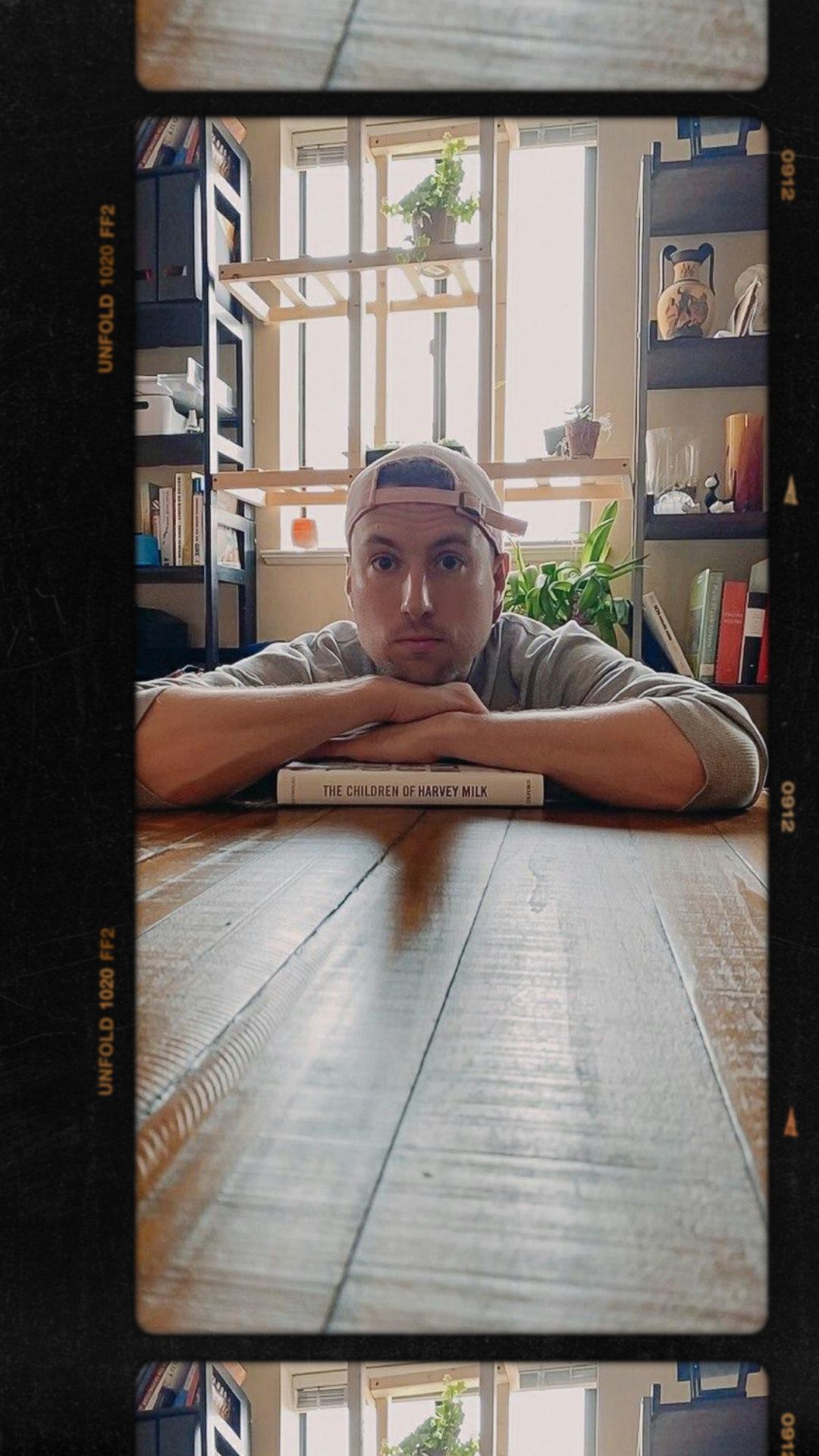
But I was happy to see so many broad-minded young people; they are much more tolerant than Ukrainian youth. I think social networks shaped them. And Hollywood. TV shows, queer shows shaped them.
I was also surprised by the hypermasculinity of LGBT people and the femininity of heterosexuals. Heterosexuals will watch a drag queen show and also want to take part in it, change clothes, adopt a part of the queer culture for fun. And LGBT culture is often represented by masculine hunks. And it breaks the pattern. In Ukraine, gays are clearly divided into tops and bottoms: either you are a hunk and pay for a date, or you are wooed and chased. Here, sometimes there is a clear distinction, but in general, people are more versatile. A hunk man can text you that today he wants to be a bottom, and vice versa. And it can be explained by the fact that the framework of freedom in the United States is much wider than in Ukraine.
I have rarely encountered homophobia, even though I know it exists here. But I did not live in villages, I have spent my time only in liberal cities. I remember in the Chicago subway, used by quite marginal and poor people (others have their cars) I was called a faggot because I had a pink backpack. There have been several such cases in my life in the United States. But I did not see any physical violence against gays. Because here the law is working, if you are violence you’ll go to prison.
Gay clubs as a phenomenon in America are becoming obsolete, people go there by force of habit. Nowadays everyone meets online: there are sex apps, dating apps. There are gay bars, clubs where drag divas perform. But offline everyone goes to regular clubs, they are mixed. Heterosexual men react perfectly well to gay dating. You approach the guy, make a compliment, he laughs and replies that he has a girlfriend. It’s so hard to tell his orientation right away. But for heterosexuals, it’s like a compliment that they got confused with a gay man, they may also talk about it on social media, like he's pleased that a man came on him.
Only the lazy ones get married once.
I got married here. We weren’t ready. We had a little romance in Kyiv and started here again. We decided to get married so, he could stay with me in the United States. There were close friends at the wedding, my mother also came. But very soon we realized that our experiment failed. We had never lived together before. He was 10 years younger than me and he was not ready for family life. So, we divorced. He lives in New York but we no longer communicate.
But my motto is: Only the lazy ones get married once. The institution of the family in America is dying. No one wants to commit for a long time. Young people can have a normal romance without responsibilities and difficulties. No one wants to settle down, to get a mortgage. But I want a child, and I understand that I will not be able to cope alone. Neither morally nor financially. So the only option for me to have children is to get married. I am considering adoption. In the United States it is difficult, every child is adopted, there are no orphanages. If you want to adopt you have to get in line. There are special agencies that find families who do not want a child. They can leave an application and give the child after its birth to those who want to adopt. But there is serious competition. You have to make a presentation to the mother of a child. You have to show where the child will live, where s/he will study, what room you have for the child, how much you earn. There are no restrictions for gay couples; the conditions are the same as for hetero couples. The only discrimination you may face is that you have to be approved by the mother and children's services. Also, if the supervisor is a homophobe, they can check the couple more meticulously. But this is just my opinion, I have never heard of such a form of discrimination. It may also depend on the state.
We plan to make a film about our organization. We want to tell about Ukrainian gay families in the United States. I want to show families who moved here to have children. I want to show what cool and talented people left Ukraine because it does not allow them to live with their families and raise their children. Ukraine has a chance to get closer to the level of US freedom. Ukrainians have European values which are stronger than those of some EU residents. The problem is in the Russian propaganda of "family values", which is heard everywhere. When Ukraine follows the European path, Ukrainians will become tolerant very easily and quickly.
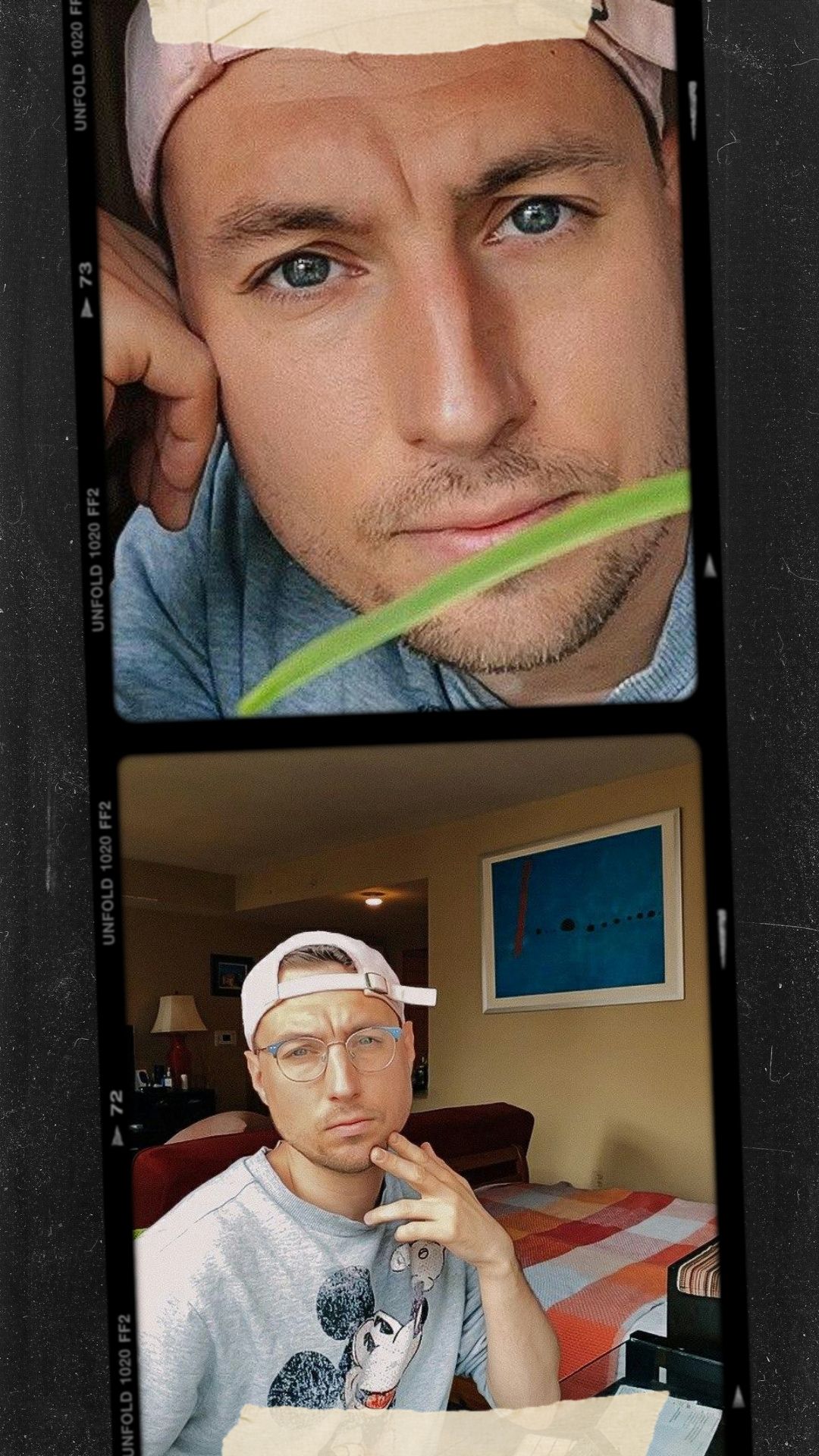
Text by:
Alina Shubska
Photo by:
Arthur Aleksanian
We seek to assist Ukrainian LGBTQ + individuals living in the US and Canada to integrate, adapt, and productively contribute to American society.
Anna Konde
Балтімор, США
Pavlo and Brian
Los Angeles, CA
Aleksandr Smirnov
New York
Tanya Mazur
Washington, D.C.
Svitlana Zemlyana
Novi Sanzhary, Ukraine
Dmytro and Ronaldo
New York, USA
Dmytro and Phillip
New York, USA
Viktor “Frenchman” Pylypenko
Kyev, Ukraine
Dmytro and Rob
New York, USA
Lyosha Gorshkov
Pittsburgh, USA
Damien and Dmytro
Chicago, USA
Roman and Anton
Атланта, США
Viachaslau and Shawn
Washington, D.C.
